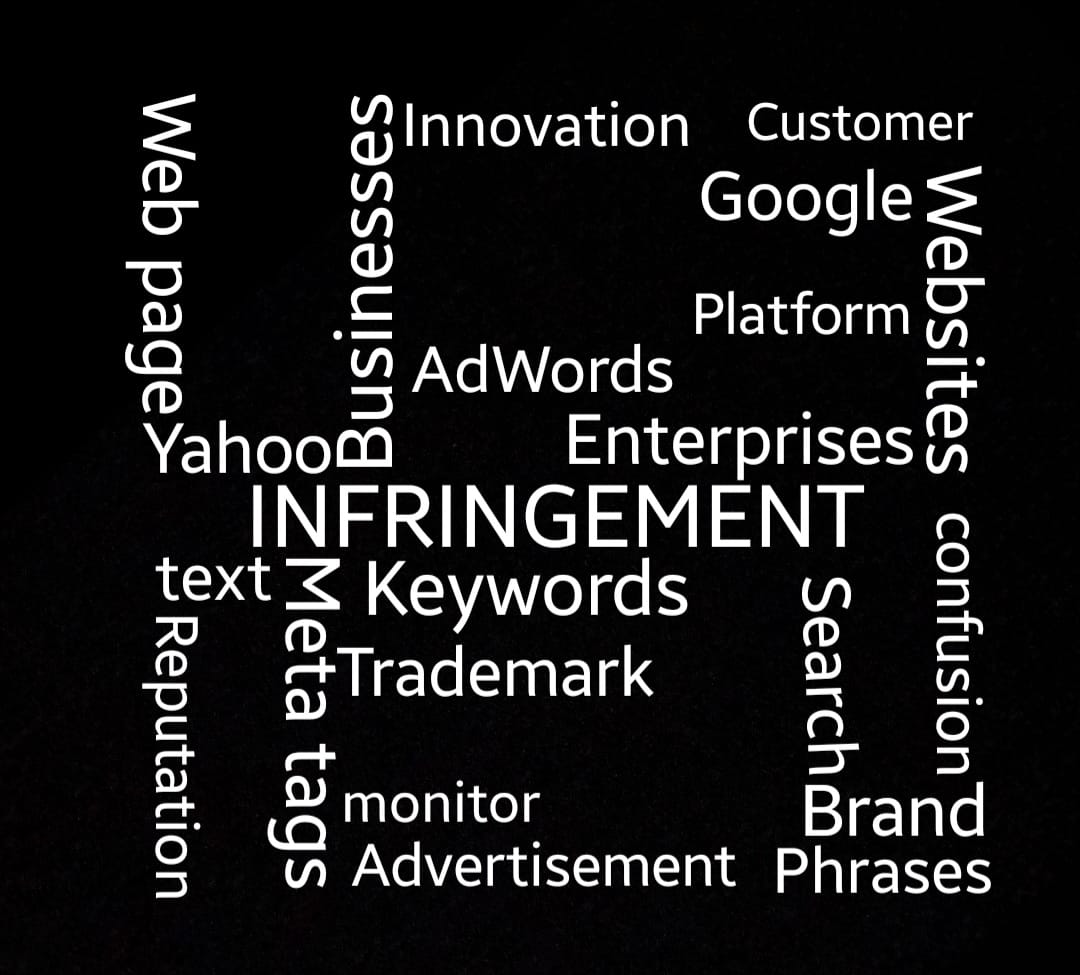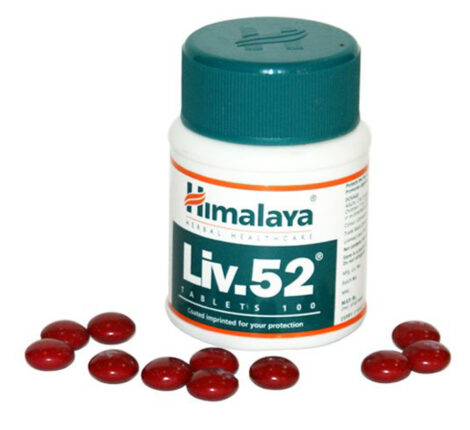Are Keywords considered for Trademark Infringement?
Introduction: –
Businesses are not excluded in the present era of an online world where people can carry out every activity online. Even the enterprises and trading companies have been actively participating online, due to which we can carry out online shopping. Websites and web-based marketing are crucial in increasing and maintaining customers. More likely than not, customers search for relevant information using keywords in search engines like Google, Yahoo, etc. Further, customers are likely to visit the web pages reflected on the first page of search results. Therefore, using relevant and suitable meta tags/ keywords becomes key in attracting footfall to a web page.
What is keyword or Metatags?
These are special kind of tags which does not affect page display. Instead, they provide additional information to the user. In simple words, a website selling furniture to rank high in query items might utilize names of different sorts of woods and terms of items sold as meta labels. So when potential clients are searching furniture look with specific keywords, this site hurls in respectable positions. The more such explicit words are used as meta labels, the better the site’s situation. Trademark/ copyrights names as meta labels are used for better positioning and quick inquiry of a specific website.
Though it is not defined in Indian law, it is defined in the case of People interactive(I) Pvt. ltd. v. Gaurav Jerry[1]. The Bombay High Court, while addressing the issue of trademark infringement where defendants used the same domain name with malafide intention to divert traffic, defined the meta-tags as follows:
“Meta tags are special lines of code embedded in web pages. All HTML (hypertext markup language), used in coding web pages, uses tags. Meta tags are a special type of tag. They do not affect page displays. Instead, they provide additional information: the author of the web page, the frequency of updation, a general description of the contents, keywords, copyright notices, etc.. They provide structured data (actually, meta-data) about the web page in question. Meta tags are always used in web-pages ‘<head>…</head>’ section, before the display section that begins with the tag ‘<body>…</body>’.“
The ‘Agarwal’ Problem[2]: –
The current suit has been initiated against Google and not against their customers who use the Google services, which are subject to constant change. The lawsuit targets the mechanism of Google, and the cause of action relates to all activities where the plaintiff’s registered trademark, i.e., ‘AGARWAL, AGGARWAL PACKERS & MOVERS and DRS LOGISTICS’ is used to indirect internet traffic to the website of the infringer. The plaintiff seeks an injunction from using the same keyword/meta tag, etc.
“Agarwal Packers and Movers” is an enrolled brand name of DRS Logistics. Yet, contenders’ sites spring up when a client looks for “Agarwal Packers and Movers,” the organization told the high Court. For example, one party, in particular, Agarwal Packers India (Agarwal Express Links Pvt.), against whom a declaration has been passed, keeps on showing up in the watchword, advertisement title, and URL.
The issue in question is whether providing a trademark of an owner as a keyword to the third party would amount to the infringement of a trademark.
Also read: Concept Of Deceptively Similar Under Trademark Law
Contentions of the parties: –
Agarwal Packers and Movers–
- That, several third-party infringers use Google’s services for inserting their infringing advertisements whenever a user on the internet searches for the plaintiff by typing ‘Agarwal Packers & Movers.’
- Despite having decrees in their favor, a simple search on google displays the infringement advertisements on their platform.
- The Google ad word policy is different in the EU regarding keywords not being implemented in India. They stated that meta-tags are machine-readable codes used by search engines to index sites.[3]
- That, a keyword as words or phrases you choose that can trigger your ad to show on search and other sites; these keywords are used synonymously with search terms and AdWords.
The plaintiffs relied on the case of Mattel inc. & Ors. v/s Jayant Agarwalla & Ors[4]. to showcase that it has been held that ‘the meta-tags are machine-readable codes used by search engines to index sites. These codes define the functionality of a website by a website owner and that the use of a trademark as meta-tags constitutes infringement and passing off.’
Reliance has also been put in the case of People Interactive(I) Pvt. Ltd v/s Gaurav Jerry[5]which states that meta tags are unique lines of code embedded in web pages that provide structured metadata about the web page. The search engine robots use these meta tags to assess webpage contents and other relevant material relating to a web page in the building of search engine indices. Thus, the illicit use of meta-tags could be severely damaging, and this is a form of hijacking the plaintiff’s reputation and business.
Also read: Can Names Be Trademarked?
The plaintiff submitted the decision of the Choclat Lamontagne Inc v/s Humeur Groupe-conseil Inc.[6] wherein it has been recorded that Google sells keywords contrary to their claims that ‘keywords are never sold or purchased.’ In this case, too, Google used a yellow-shaded box to identify the sponsored links.
Further, they relied on the case of Google India Pvt. Ltd v/s Add. Commissioner of Income Tax[7] to state that Google reviews keywords. That, google has certified partners who help manage advertisers’ AdWords accounts. The search engine monitors user behavior, and the keyword planner tool suggests the suitability of keywords that are useful in particular month of the year.
Google –
Google contended that its ad program merely provides an advertising platform and interface for creating and placing an ad on google search. Keywords supplied by an advertiser are treated as a back-ended trigger for an ad to be displayed; they are never used in a trademark sense. Further, they are neither sold by google nor purchased by the advertiser in the importance of exclusively reserving the term. They also said that their trademark policy investigates trademark terms in the Ad-text of competitor ads. Their approach is applicable globally, including India, and is aligned with global legal precedent. Using the keywords does not amount to trademark infringement as it does not come under “use” under the Trademark Act. Another contention was that the keywords are not meta-tags.
Google relied on the case of Veda Advantage Ltd. v/s Malouf Group Enterprises Pvt. Ltd[8]to showcase the difference between keywords and meta tags. Further, the Federal Court of Australia declared that using a trademark as a keyword ‘invisible to the consumer’ is not trademark use.
Also read: Can Religious Symbols Be Granted Trademark Protection?
Reliance has been placed on the case of Cosmetic warriors Ltd & Anr. Vs. Amazon.uk Ltd & Anr.[9]wherein the Chancery Division Court held that the use of third-party trademarks as keywords to trigger advertisements does not constitute trademark infringement.
Further, in the case of Alzheimer’s Disease & Related Disorders Association vs. Alzheimer’s Foundation of America Inc[10] the District Court of New York stated that purchasing a competitor’s trademark as keywords alone is not actionable without additional behavior that confuses consumers.
Google argued that the relevant class of consumers who access the internet and use the Google search engine are likely to be the discerning class of users that is literate/semi-literate, thus having a basic understanding of how to search websites on the internet. These users have a basic knowledge and experience of English, how search results appear, the difference between average organic search results and Ads, and the various industry players in the packaging and moving business. Thus, it is unlikely for consumers to get confused by the appearance of the advertisement as the same is marked as ‘Ad’ and depicts the details of the advertiser.
To support their argument, Google placed reliance on the case of Nebo v/s Almazakh[11]wherein it was observed that ‘the use of a trademark as keyword does not create the possibility of confusing any products of the claimant with those of the advertiser and it is merely one of the technical criteria provided by the advertiser for displaying his ad in the online advertising spaces.’
Also read: Remedies Against Trademark Infringement
The Decision of the Court: –
After hearing both sides, the Court held that the trademark Act, 1999 doesn’t specify an intermediary’s liability for trademark violations. Section 29(9) of the act provides if a registered trademark consists of or includes words, spoken use of those words or visual representation may amount to infringement. The Court stated that the plaintiff can seek the protection of its trademark, which are registered under Section 28 of the Act but cannot have any right on surnames or generic words like ‘Packers’ or ‘Movers’ individually.
After relying on this provision, the Court declared that a violation could happen by way of spoken use, which means that an invisible use of the mark can also infringe the trademark. Further, the Court advised Google to restrain advertisers in case the trademark(s) and its variations as keywords are infringing/passing off the plaintiff’s trademark.
As Google is an intermediary, google must ascertain that the keyword chosen by the advertiser is not a trademark. The Court also said about the trademark policy of Google, which is not implemented in India.
The Court said, “it is clear from Google’s EU and EFTA policy that Google provides a higher duty of care in a jurisdiction where large portions of the population are internet literate. This aspect further fortifies my findings as to why such a policy should be followed in India”. The Court also referred Forasol vs. Oil and Natural Gas Commission[12] to state that the current case be differentiated on the ground of the average consumer being normally informed and reasonably attentive. Further, as the laws prevailing outside the country are different, reliance on foreign judgments should be misplaced. The Court also noted that seeking safe harbor under provisions of the IT Act would amount to legalizing the infringing activity.
Also read: 8-Step Guide To Register Your Trademark In India
Comment: –
From the analysis of the above cases, using a third-party’s marks as meta tags amounts to infringement of such marks, and the Courts have restrained such use. Though India doesn’t have a proper set of rules, we are moving forward through precedents. This case can result in is a positive turn to protect the rights of the trademark owners through meta tags and keywords.
References: [1] NMS (L) NO. 1504 of 2014 in SUIT (L) NO. 622 OF 2014 [2] M/s DRS Logistics(P) Ltd & Anr. v/s Google India Pvt. Ltd & Ors. CS(COMM) 1/2017. [3] Mattel Inc. & Ors vs. Jayant Agarwalla & Ors 2008 (38) PTC 416 (del) [4] supra [5] MIPR 2014 (3) 101 [7] LNINDORD 2017 ITATND 3508 [8] [2016] FCA 255 [9] [2014] EWHC 181(Ch) [10] 307 F. Supp. 3d 260 (2018) [11] Case No. A40-128465/17-91-1116(2017) [12] AIR 1984 SC 241
Authored by: Harsh Gehlot; student of D.E.S NAVLAMAL FIRODIA LAW COLLEGE, PUNE
Disclaimer: This article is intended to provide general guidance to the subject matter. It does not contain legal advice. For any specific advice/corrections, write to [email protected]
© ZEST IP




